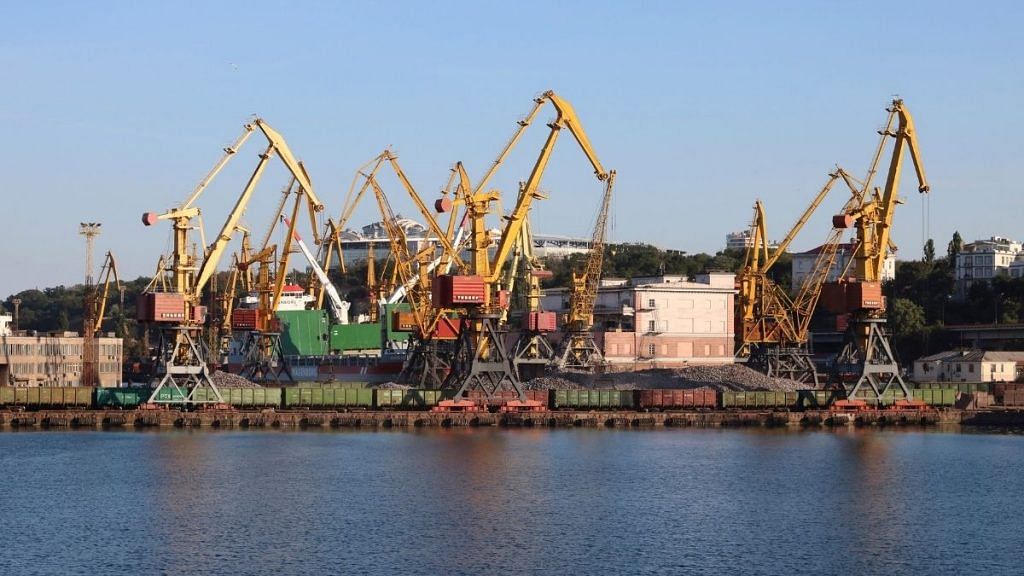New Delhi: The first grain ship left Ukraine’s port of Odesa on Monday morning, under a United Nations facilitated deal that will provide it safe passage through the Black Sea.
This was the first vessel to have left a Ukraine port since the Russian invasion began on 24 February, Ukrainian Infrastructure Minister Oleksandr Kubrakov tweeted Monday.
The first 🇺🇦 grain ship since #RussianAggression has left port. Thanks to the support of all our partner countries & @UN we were able to full implement the Agreement signed in Istanbul. It’s important for us to be one of the guarantors of 🌏 food security. pic.twitter.com/jOz3bdmdfB
— Oleksandr Kubrakov (@OlKubrakov) August 1, 2022
Prevent world famine together with @UN, @EU_Commission, #G7. The first ship left the Odesa port since 24.02.2022 pic.twitter.com/Nin8nSV8LM
— Oleksandr Kubrakov (@OlKubrakov) August 1, 2022
“It’s important for us to be one of the guarantors of food security,” the minister said, thanking the United Nations, and other partner countries.
The ship Razoni, flagged for Sierra Leone, was carrying 26,000 metric tonnes of corn.
Russia and Ukraine signed a landmark deal in Istanbul last month, brokered by Turkey and the United Nations, to open grain and fertilizer exports that have been blocked by the war.
This is expected to ease the global food crisis, analysts said.
The deal will enable Ukraine to export 22 million tonnes of grain and other agricultural products that have been stuck in Black Sea ports due to the war.
The agreement will also create provisions for safe passage of ships. A joint control centre has also been established in Istanbul, staffed by UN, Turkish, Russian and Ukrainian officials, to run and coordinate the process. The ships would also undergo inspection to ensure they were not carrying weapons.
Ukraine is regarded as the “breadbasket of Europe” — supplying 10 per cent of the world’s wheat, 12 to 17 per cent of the world’s maize and half of the world’s sunflower oil. Also, 25 million tonnes of corn and wheat – the entire annual consumption of all the least developed countries.
The West has said Russia’s actions have driven up prices in countries like the UK and the ongoing blockade has placed 47 million people around the world on the brink of humanitarian disaster.
Also read: Wheat production in Ukraine likely to fall 41 pc in 2022-23 season
